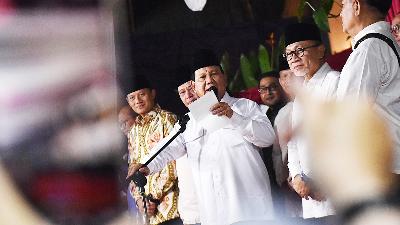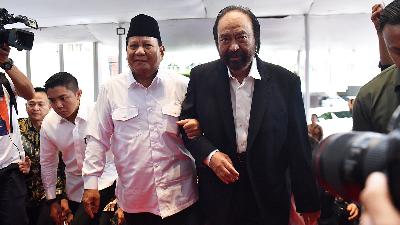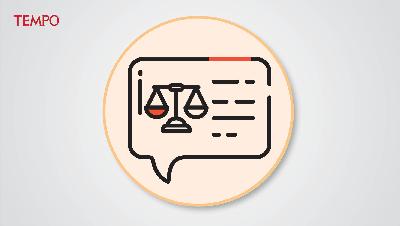Because the State is not an Entrepreneur
Monday, March 25, 2024
The government plans to accelerate the privatization of state-owned enterprises. Stop paying out budget funds for state companies.
arsip tempo : 174726403223.

THE government’s effort to consolidate state-owned enterprises (SOEs) is a rational move when many state companies are a financial burden for the government. It is time the government stopped paying out state funds to SOEs.
The SOEs Ministry has once again rolled out the plan to reduce the number of state companies. At present, there are 41, but only 25 of these are making a profit. The remainder have become ‘parasites’ surviving thanks to funds from other SOEs or relying on state injections of capital—amounting to a proposed Rp57 trillion for 2024 and 2025. The target is that there will only be around 30 state-owned companies by the end of next year.
The transformation that has continued since 2020 is not simply aimed at forming holding companies. There are also plans for the privatization of SOEs. The president-elect, Prabowo Subianto, has said that hotels are one economic sector that does not need to be directly operated by the state.
There is no need for us to be allergic to privatization, yet alone link it to nationalism. Privatization often brings many benefits, from operational efficiencies and incentives for innovation to an improvement in product quality. The government would be able to allocate proceeds from the sale of SOEs to improve public services.
Privatization of state companies is a corporate move that has happened in many countries. In Japan and the United Kingdom, for example, Japan Airlines and British Airways have long been private companies. The name of the country has still been retained by the companies despite the fact that they are both no longer flag carriers.
Conversely, retaining companies under control of the government should be ended. The most obvious disadvantage is the government's control over what they do. SOEs are often obliged to handle government projects despite the fact that they are not commercially viable. As a result, these companies lose money. Eventually, it is the state that has to bear these losses. Case in point is infrastructure construction company Hutama Karya, which has suffered an annual loss of up to Rp2 trillion as a result of the interest in loans and the amortization of the Trans Sumatra toll road.
These problems would not arise if the company were privately run. Therefore, privatization of SOEs is the right thing to do. The substance of privatization of SOEs is in the wording of Article 1 section 12 of Law No. 19/2003 on State-Owned Enterprises, about the improvement of corporate performance and value, increasing benefits to the state and the people and expanding public share ownership.
Therefore, before selling shares, there should be a comprehensive study to ensure that these benefits can be achieved. The implementation must be fair and transparent. Privatization must not simply transfer ownership to cronies of the government.
Moreover, the government needs to rethink its policy of grouping together SOEs. There is a suggestion that Garuda Indonesia join InJourney, an SOE holding company in the tourism sector. This corporate group is too large. It includes airport operator Angkasa Pura, Pengembangan Pariwisata Indonesia, and retailer Sarinah. Rather than leading to healthy competition, this grouping together of SOEs more resembles a monopoly. This large group was established in 2021 with an injection of state capital exceeding Rp10 trillion, including fund to cover the costs of organizing the 2022 MotoGP in Mandalika, West Nusa Tenggara, which was around Rp200 billion.
It is time for the state no longer burdened with corporate matters. The government should be confined its role to that of a regulator, not a business operator. Like a sports tournament, having players who are also acting as referee are bound to lead to poor quality games.











